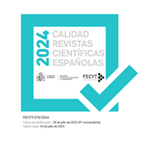LOTE (Languages Other than English) learners’ investment in learning languages
Resumen
This study draws on the model of language learning investment to explore China’s LOTE (Languages Other than English) students’ learning motivation. Data collected through in-depth interviews with 35 university students were analyzed in an inductive way. The findings show that: (1) the participants invested in learning LOTEs because they had enough affordances (resources applicable to LOTE learning) and/or perceived target language-related benefits (economic, cultural or social ones) from LOTE learning, even though most of our participants were initially involuntary applicants; (2) students were reluctant to invest in learning their target language(s) and merely strove to fulfil their program(s) when they were lacking affordances, perceiving few benefits, or even devalued by the in-context ideologies. These findings provide important implications for LOTE educators to motivate their students, and for policy makers to improve China’s LOTE education.
Descargas
Descarga artículo
Licencia
La revista Círculo de Lingüística Aplicada a la Comunicación, para fomentar el intercambio global del conocimiento, facilita el acceso sin restricciones a sus contenidos desde el momento de su publicación en la presente edición electrónica, y por eso es una revista de acceso abierto. Los originales publicados en esta revista son propiedad de la Universidad Complutense de Madrid y es obligatorio citar su procedencia en cualquier reproducción total o parcial. Todos los contenidos se distribuyen bajo una licencia de uso y distribución Creative Commons Reconocimiento 4.0 (CC BY 4.0). Esta circunstancia ha de hacerse constar expresamente de esta forma cuando sea necesario. Puede consultar la versión informativa y el texto legal de la licencia.











